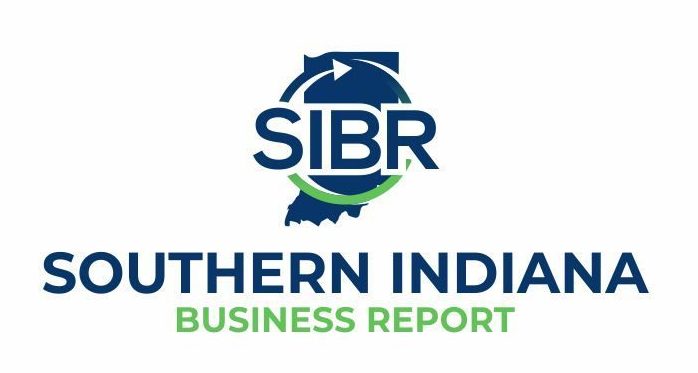By Michael Hicks | Ball State University
Many business leaders are reluctant to say so publicly, but President Biden’s vaccine mandate is a welcomed gift. It offers them and their employees a relatively easy way to dodge what may be a looming health insurance price spike. For businesses that find it hard to hire and keep workers, this should be especially beneficial. It will also help maintain workplace comity at a time when it is about to be heavily stressed by rising healthcare insurance costs driven by unvaccinated workers and their families.
Faithful readers of this column will know my distaste for much government regulation. It has become so extensive and intrusive that businesses often find themselves spending time and energy over patently silly rules. From occupational licensing of interior designers to annually changing standards for commercial fans, there are endless examples of overregulation. If you’ve ever filled out an OSHA safety form for window cleaner, you’ll know exactly my point (but all that is for another column).
Government regulation should be limited to only those few instances where markets for goods, services and labor fail. Markets don’t normally fail, but the textbook example is the idea of an externality. That is when the exchange of a good or services imposes a cost or benefit to someone not involved in buying or selling the item. Pollution is the textbook example of a negative externality, where smoke or toxic emissions imposes costs on other people who are not buying or selling the product. Vaccines are the textbook example of a positive externality, where benefits flow not just to the maker and recipient of the vaccine, but to others as well.
The benefit of the COVID vaccine is a stunning reduction in hospitalizations and deaths. Few vaccinated people are hospitalized or die from COVID. Today, with the vaccine available to those age 12 and older, hospitalization and death are mostly voluntary as a choice made by those who’ve elected not to receive the vaccine. If these people bore the full cost of their healthcare and burial expenses, the argument for a vaccine mandate would lessen. But, that’s not how we pay for healthcare. Moreover, crowded hospitals impose significant secondary costs on all of us, which I’ll save for another column.
Thus far, most individuals have dodged the financial cost of COVID health expenses. The government has made the vaccine and tests free, and insurers have yet to fully adjust their premiums for the disease. That will change, perhaps in the coming weeks. It will be costly and affect almost all of us. That should occasion some thinking about just how bad the cost increase will be.
Over the past four months, about 1 in every 300 unvaccinated adults has been hospitalized with COVID. In contrast, vaccinated adults have about 1 in 10,000 hospitalized. These hospitalizations cost between $51,000 and $76,000 each. So, over a full 12-month period, we expect the costs for unvaccinated individuals to range from roughly $450 to $684 per person. That is the share of total unvaccinated hospitalizations spread over the unvaccinated population. For the average vaccinated person, the cost is under $25 a year.
Insurance firms are busy figuring out reasonable ways to build these new costs into health insurance premiums. As the season for open enrollment in healthcare insurance start in a few weeks, most American businesses should anticipate eye popping rate increases. My estimate is that for an unvaccinated family of four, healthcare insurance premiums likely will rise to nearly $2,740 per year. For a vaccinated family of four, the increase may be less than $95 per year.
These are “back of the envelope” calculations, but they are in the approximate range of actual cost differences that can be anticipated between the vaccinated and unvaccinated. So, as CEOs meet with insurers, they are likely to face some grim choices. One option may spread the cost over all employees. Another option will offer to charge different rates for the vaccinated and unvaccinated. This is akin to the higher health insurance rates paid by smokers. It’s worth thinking how this might shake out in a typical firm.
Let us take a 300-person warehousing firm, with each employee having three family members on their plan. Now let’s suppose exactly one half of the employees and their families are vaccinated, and the other half is not. In this case, if the costs are spread out across the whole workforce, the extra cost per family is $1,296 per year at the high-cost range. Now suppose a second plan option is to charge each employee a surcharge based on their vaccination status. The vaccinated worker will be paying less than $100 per year extra for their family of four, while the unvaccinated worker will be paying $2,740 per year for their family.
The cost works out to be equal to an extra $1.32 per hour over a year of work, so few employers are going to wish to bear that cost in healthcare premiums. I think this makes it very unlikely that most employers will cover that extra cost. This difference will also detail some pretty uncomfortable conversations with workers.
This puts employees in a difficult position, especially when autumn is the typical time for employers to settle on a new health insurer and for employees to choose their plan. It takes about a month to get both vaccines, so for workers who have not been vaccinated, the 2022 health plan enrollment season might offer a surprising rate shock. This also puts employers in a tough spot, and that’s where President Biden’s vaccine mandate helps. Instead of the unvaccinated minority venting their frustration at the CEO or owner, they can instead get angry at the President.
In a better world there’d be no need to mandate vaccines for a life-threatening disease that has clobbered our economy. Vaccines are a marvel of scientific achievement, free enterprise and the American spirit. In a better world, Americans would be lined up to be vaccinated. However, in the world we now inhabit, Biden’s vaccine mandate gives businesses an easy excuse to insist upon vaccinations among their workers before they face the certain arithmetic of paying for this pandemic. The wiser heads in the business community should be grateful for this vaccine mandate.
Michael J. Hicks, PhD, is the director of the Center for Business and Economic Research and the George and Frances Ball distinguished professor of economics in the Miller College of Business at Ball State University.



